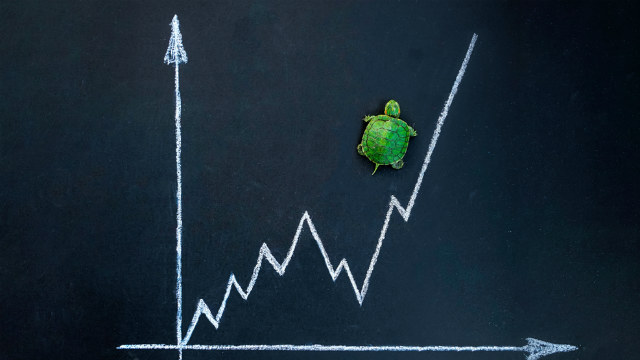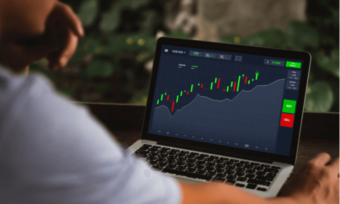Is it too late to invest in the sharemarket?

The Aussie sharemarket has been having a good run. Does that mean you have left it too late to invest? Here’s what the Motley Fool’s Scott Phillips has to say.
As I write this, the ASX 200 is hovering around the 7,000 point mark. 2019 represented one of the best years for our market in ages, with stocks returning around 25%, including dividends – and closer to 35% over the past 13 months.
And yet, our economy muddles along, the RBA is reportedly considering further rate cuts, and we have both geopolitical and global health concerns right on our doorstep. Who, in their right mind, would be adding to their investment accounts right now?
Well, me.
And I think you should consider it, too.
See, the more I learn about investing (and we’re all always learning – or we should be, anyway), the less I obsess over the black and white numbers. Yes, they’re important. Sometimes, very important. They are the language of business.
More important? Psychology.
Here’s something you might know: the average managed fund loses to the market in every study I’ve ever read (the reason is fees, by the way). But here’s something you might not know – while the average fund loses to the market, the average fund investor does even worse!
Why? Because they chop and change too frequently, chasing last year’s winners, or trying to “reposition” their portfolios for something or other.
It’s our brains. In short, our financial system has evolved at a faster pace than our natural ability to deal with it. We have the intellect, but not the natural instinct. And that battle – between what we think and what we instinctively want to do – should be the investor’s number one focus.
Which leads us back to 7,000 points.
Two groups of investors
Whenever stockmarkets reach new records, we tend to split into two groups. The first group says “Making money in the stock market is easy. Time to open a margin lending account and start trading options!”. The second group says “This is getting scary. What if it’s unsustainable? I’m getting out”.
And both views are wrong.
Let’s look at the first one. Back in 2007, everyone was making money. Sharemarket investors were doing well, and US house-flippers were making out like bandits. It couldn’t have been easier to get wealthy. Until the music stopped. I know of people, and have heard plenty of anecdotes about others, who shunned the stock market for years, only finally succumbing to the lure of “Keeping up with the Joneses’ in 2006 or 2007. Soon after, the market crashed, they sold all of their shares, and swore off the stock market.
(We know what happened next: the market soared, and they missed the opportunity to make back their losses, and more. Monkey brains.)
The second group? They didn’t invest in 2007. The market was too high. They didn’t invest in 2008 or 2009 either, because they wanted to wait to make sure the market had truly bottomed. They didn’t invest in 2010 or 2011, because the US was going to suffer a double-dip recession. They stayed out in 2012, 2013 and 2014, because Grexit – the Greek exit from the Euro – was going to wreck the global economy. 2015 was the worst year for the stockmarket since the GFC, and they weren’t going to invest during that time.
2016 was the year the Poms voted for Brexit, and they knew that was going to be bad for investors. It’s also when the AFR splashed a headline that had Royal Bank of Scotland (RBS) saying “Sell Everything”. Plus, late that year, the Yanks elected Donald Trump, and that was going to wreck the market. By 2017, though, they’d missed their chance, and they weren’t going to buy after stocks had risen (the market decided that President Trump and lower interest rates were a good thing) and 2018 was the worst year in a decade for stocks… who invests after that? Thank God they stayed away, because they missed… the 25% gain last year.
Here we go again… release the headless chooks!
(US markets down sharply overnight, because, well, short-term fear. Don't give in to it.)https://t.co/AiLOjzYCJN
— Scott Phillips (@TMFScottP) January 27, 2020
Yes, there’s always a reason not to invest. The problem is that, historically speaking, that’s been a terrible decision.
Looking back, it’s true that markets have fallen from all-time highs. But you know how they got to those all-time highs? By going past the last ones. That monkey brain I spoke about? It looks at past stockmarket charts and sees those patterns, but doesn’t see the real implications anywhere near as easily.
We don’t invest because the market is too high.
Then we don’t invest because it’s falling.
Then we don’t invest because it might get worse.
Then we don’t invest because we missed our chance at the bottom.
Then we don’t invest because the market is too high.
(If that feels like a trillion dollar version of “There’s a hole in my bucket” to you, you’re not alone.)
To be clear, I’m not making fun of these people. And I don’t blame them. Insufficiently aware, informed or educated, their brains are doing just what evolution has taught them to do – beware of potential danger.
I mentioned a second group earlier. While evolution has taught some of us to see risk around every blind corner, it also provided us with a way of making decisions using past information. If you had to, consciously, decide to open your eyes each morning, then consciously move every single muscle involved in sitting up and getting out of bed, then walking, then brushing your teeth (and so on), it would be mentally exhausting, and you’d get nothing done.
So our brain learns to hardwire those actions. It also learns to extrapolate from the past. That’s the instinct that tells some of us to be careful. If you don’t look back far enough, though (consciously or subconsciously) you can extrapolate the wrong things. Those are the people who saw the US market double between 2002 and 2007 and decide that they wanted to make easy money, throwing caution to the wind, and costing themselves a fortune (and sometimes ending in bankruptcy).

A third group of investors
What I didn’t mention was a third group.
These are the slow and steady accumulators. They were buying shares in 2007, and those shares got hammered in 2009. Stupid huh? Not so fast.
See, they were buying in 2002. And 2004. And 2009 as well. They enjoyed the gains for the five years up to the (then) peak, then got to buy even more when prices crashed. They kept buying, every year. 2010, 2013, 2016, 2018. The combination of stockmarket gains and regular contributions meant they were in a prime position to enjoy last year’s 25% rise.
They also know another crash is coming. They don’t know when, but they know to expect it. They’ll just keep buying, patiently, before, during and after it.
They know they won’t pick the next “top”. Almost no-one will, and 99% of those will just be lucky.
They know they won’t pick the next bottom, either.
They’re not immune from feelings of gloom and euphoria – they’re human, just like you and me. But they know to subsume those feelings to the long term history of investing.
So, is it too late to invest? No, not even close.
Is that because I know that we’re going to 8,000 or 10,000 points before the next fall?
No. The opposite.
Because I can’t know what our eventual, temporary, all-time high will be, before the next fall. And because I can’t know what the timing or depth of that fall will be.
Instead, I’m putting the weight of history on my side. Experience – and the research of others – shows clearly that regular, market-agnostic, investing is the best way to amass a long-term nest egg.
Or, you can give in to your monkey brain. Choose carefully.
About Scott Phillips
Scott Phillips is Chief Investment Officer at The Motley Fool and runs the Motley Fool Share Advisor, Million Dollar Portfolio and Everlasting Income services. Scott holds a Bachelor of Commerce, a Graduate Diploma in Accounting.
Main image source: Motortion Films (Shutterstock)
Try our Online Share Trading comparison tool to instantly compare Canstar expert rated options.








